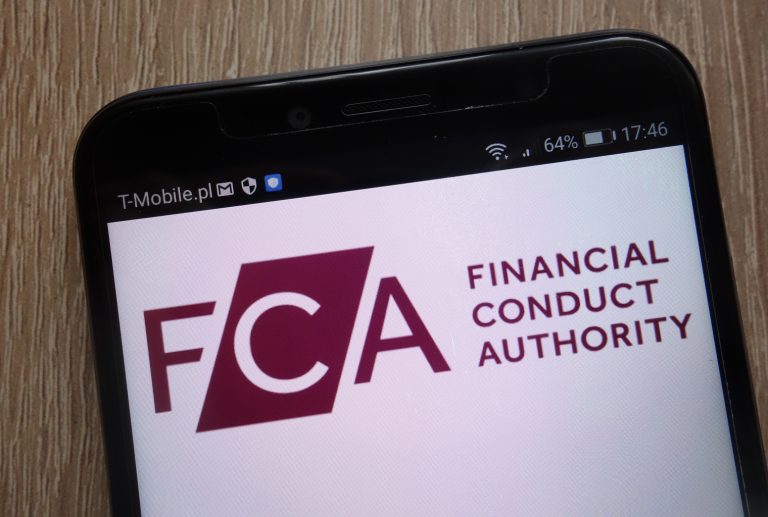
2019-10-8 01:30 |
The U.K.’s Financial Conduct Authority (FCA) has been relentlessly scrutinizing cryptocurrency startups and investigations are up 74% from last year. Meanwhile, proponents of decentralized software development models and open collaboration are upset about the FCA aiming to extend KYC/AML regulations to the publication of open source and zero-knowledge software.
Also Read: McAfee to Launch Decentralized Token Exchange With No Restrictions
Since 2018, FCA Investigations Into Crypto Companies Increased by 74%The Financial Conduct Authority in the U.K. has been ramping up regulations toward digital currency operations based in the region. It started escalating last year when a few eminent U.K.-based wealth management firms asked the FCA to add strict regulatory policy toward digital currency companies. At the time, Simon Miller, Scalable Capital’s CEO, showed his dislike for the crypto industry. “People see the explosion of digital currencies and say ‘I can make a lot of money quickly.’ But that’s not investing — that’s gambling. It needs to be looked at,” Miller explained. Two other wealth management firm executives from Wealthify and Nutmeg agreed with Miller. The regulatory watchdog had already been setting guidelines and standards for the crypto industry and warned the public about cryptocurrency-based CFDs (contracts for difference).
Now reports show the FCA has increased its investigations into digital currency operations by 74% and is currently investigating 87 crypto startups this year. Last year, the percentage of investigations was lower, but the initial coin offering (ICO) phase was still in full swing. Pinsent Masons executive David Heffron supplied the research to the Financial Times which reported on the “sharp rise in watchdog scrutiny of U.K. cryptocurrency groups.” The FCA has been contemplating banning digital currency-based derivatives products as well and discussed the subject on October 3. Orrick law firm’s Jacqui Hatfield called the FCA conversation a “knee-jerk reaction” and emphasized that “crypto-derivatives are just as risky as other derivatives.”
The FCA’s Guidance on Crypto Assets Raises ConcernsThe latest news from the FCA’s investigations follows the regulator’s recent “Guidance on Cryptoassets” report published in the summer. The FCA’s research, feedback and final guidance statements show the regulator isn’t too keen on digital currency operations. In the report, the FCA proposes extending KYC/AML and CTF (anti-money laundering and counter-terrorism financing) rules to crypto companies residing in the U.K. The regulations would mandate companies like exchanges, wallet operators, and token issuers to collect user information. “A combination of market immaturity, volatility, and a lack of credible information or oversight raises concerns about market integrity, manipulation and insider dealing within cryptoasset markets,” the FCA’s report declares. “This may prevent the market from functioning effectively and damage its reputation.” The FCA’s researchers continued:
The aim of the Guidance is to clarify what is regulated by the FCA, where regulation applies and what this means for firms. This means that firms that carry on regulated activities will need to be authorised. Firms and other market participants will also need to make sure they know, and comply with, the relevant regulatory obligations that apply to them.
FCA’s Guidance on Cryptoassets” report Extending KYC/AML Practices to Open Source Publication and Noncustodial OperationsIn addition to the operations that deal with cryptocurrencies, the FCA is concerned with crypto-related open source and zero-knowledge (noncustodial) software. The FCA wants to target “the publication of open-source software” the report suggests and the open collaboration mandate includes “but is not limited to, noncustodial wallet software and other types of cryptoasset related software.”
UK's FCA seeks to extend AML regulations to publication of open source software.https://t.co/ljtWZro3Bv pic.twitter.com/w2Ur7h7y5g
— Tamas Blummer (@TamasBlummer) October 4, 2019
Essentially the regulator wants crypto firms to divulge user information even if the platform is noncustodial. This means companies that don’t even have oversight of people’s stored cryptocurrencies and have no idea how these individuals transact must comply with the FCA’s strict rules. It will be interesting to see how they can apply this regulation to a wallet operator, when the platform creator has zero knowledge of its user base. The U.K. watchdog’s report also said that many groups from the “financial services sector and beyond” supported the FCA’s proposals. The guideline proposal shows that not only were wealth management firms begging the FCA for strict guidelines last year, but also large banks, trade associations, consultancies, technology firms, academia, and other government entities.
What do you think about the FCA’s stringent action toward cryptocurrency company investigations? What do you think about the FCA extending AML regulations to the publication of open source software and zero-knowledge noncustodial operations? Let us know what you think about this subject in the comments section below.
Image credits: Shutterstock, Wiki Commons, Fair Use, FCA, Pixabay, and Twitter.
Did you know you can buy and sell BCH privately using our noncustodial, peer-to-peer Local Bitcoin Cash trading platform? The Local.Bitcoin.commarketplace has thousands of participants from all around the world trading BCH right now. And if you need a bitcoin wallet to securely store your coins, you can download one from us here.
The post UK Regulator Ramps up Crypto Investigations and Considers KYC for Wallets appeared first on Bitcoin News.
origin »Bitcoin price in Telegram @btc_price_every_hour
Open Trading Network (OTN) на Currencies.ru
|
|